What You Need to Know About Selling an Insurance Firm
These steps can help you secure the highest possible sales price for your Insurance Brokerage Firm.
It’s no secret that our economy is booming and on track to experience more growth. With new jobs being created every day, and a steady decrease in unemployment and gas prices, Americans have more disposable income than they have in the past 6 years. As of December 2014, U.S. personal income rose 4.6% from last year and is forecasted to increase by the end of 2015. These factors, along with options and affordability, are driving more Americans to invest in their assets and well-being and purchase insurance. The projected increase in sales due to disposable income, as well as growth patterns for the next 5 years, make this year a very favorable time to consider selling your insurance brokerage firm.
The insurance brokerage industry is an incredibly profitable sector to be in. On average, profits are around 10.5% and well-run firms can average around $140,000 per employee! There are currently about 373,000 insurance brokerage firms in the United States and hundreds of carriers to partner with. The insurance brokerage industry is slated for 6% growth in 2015 and revenues rose 3.4% the 3rd quarter of 2014, developing a pattern for growth over the next 5 years. While it may feel counterintuitive, the best time to sell a business is when the economy is thriving and your business is doing well. The insurance field has several factors that go into pricing calculations, and to help give owners an idea of what is important, we have listed the formulas below. Keep in mind that these are merely a guide and only a professional business broker can tell you the true value of your business.
- 125-150% of Annual Sales including Inventory
- 150-200% of Commission Revenue
- 2x Annual Revenues
- 3-5x SDE, 4-5x EBIT, 4-6x EBITDA
Now that you are aware of some of the factors that go into calculating a purchase price on insurance agencies, we can help you take steps now to increase the value so that when you are ready to sell, you are more likely to secure a higher price.
Client Diversification
A piece of advice we give to all business owners, regardless of industry, is to diversify your clientele. We have met many business owners have one or two large clients that are responsible for over half of the company’s revenue. To a buyer, this is viewed as a major risk and in order to increase the value of your firm and attract more buyers, we advise business owners to seek smaller accounts so that less weight is placed on large clients.
Insurance agencies have several options to diversify clients because of policy offerings. Insurance policies can range from health and medical to life and accident, with several other annuities and asset protection plans in between. The types of policies you currently offer will dictate the types of clients you serve. Health and medical policies cast a wide net and are relevant to everyone; large corporations need group plans for employees and individuals need short and long term plans. Commercial and Personal Property and Casualty can range from small business owners looking to protect the equipment within their business to individuals who want to insure large investments such as boats or cars. If your firm is offering strictly one or two types of insurance, you may want to consider expanding your offerings to encourage growth and customer acquisition.
Customer Service
In my own experience working in the insurance industry (and discussing my own plans with providers), I have learned a very important rule – customer service is king. How many times have you gotten frustrated while speaking with an insurance carrier or provider? Most people would say too many, which is why it is vital to focus on providing the best customer care possible to your clients. If your sales representatives are not already checking on clients, this may be a good initiative to enforce, especially on larger accounts. If you see that an important client is not being nurtured the way they should, consider changing account managers or step in and oversee. Clients in the insurance industry and have huge buying power and unlimited options to seek services from; if a large client takes their business elsewhere, you could miss out on the retention payouts.
While on the subject of nurturing client relationships, it is a good idea to ensure these relationships are fostered between your staff and the client – not the business owner. At some point, you will want to exit the business and buyers who see that all client relationships are funneled through the owner, will view the business as too risky. Relationships between long tenured employees and clients shows a buyer that a transition will be seamless and there is little risk of losing the client due to the owner’s exit.
Sales Volume
Never stop selling! Business valuations in the insurance industry rely heavily on revenues and profits, and if your books decline, so will the overall value of your firm. Selling can be exhausting, which is why we encourage business owners to develop a team of experienced sales staff and a long term plan to ensure continuous sales and revenue streams. Incentive plans are one way to inspire your sales team to get the deal and foster healthy competition amongst each other. Mapping out target accounts and assigning specific salespeople, or small teams, to these accounts allows them to focus more time and energy on the prospect. Staying consistent with a sales and marketing plan will only increase the value of your business, and show potential buyers that there is always a deal in the pipeline.
Group Plans
While obtaining individual plans are important, group plans are the bread and butter of the insurance industry. Group plans (or plans that large corporations use for their employees) are the biggest source of revenue among insurance firms, but can be difficult to secure. For smaller firms who are trying to break into the group plan segmentation, it might be helpful to go after small businesses before targeting corporations. Small businesses often need plans for employees as well, and can be a good source of revenue that is easier to manage. Once you have experience with smaller businesses, owners can work their way up and focus on larger corporations. If your firm is having trouble securing group plans, industry trends are showing that offering additional services can help win the bid. For example, if your firm is offering health care to a small to mid-size business, consider including dental and vision to sweeten the pot.
Insurance Agent Designations
Having agents on your team that have been certified is a powerful tool that can really help increase the value of your insurance firm. Insurance Designations are basically, certificates distinguishing the agent as a specialized agent in one area of insurance. If your firm offers a variety of services and policies, having a team of certified agents specializing in different areas will help set your firm apart as an industry leader. To help better understand the importance of having certified agents on your team, think of a high school and the teachers on staff. There’s an English teacher, a Math teacher, a Science teacher – but no teacher than is a master of all subjects. Each teacher specializes in their subject matter in order to deliver the best results – this is how insurance agents can be viewed. To find out more about the types of designations an insurance agent can obtain, check out this website.
If you are thinking about selling your insurance firm, we hope these 5 tips have helped you determine ways you can increase the value. When you decide you are ready to sell, it is important to recoup the years and sweat equity that you spent building your business and get the best sales price possible. The economy in the Southeast is thriving right now, and buyers are looking at Charlotte as a hotspot for acquisitions. If you are thinking about selling your business, the first step is finding out how much it is worth and we can tell you with a no-cost, no-obligation valuation. Even if you are 6 months to a year away from selling, taking these steps now can help you increase the sales price for when the time is right for you.


